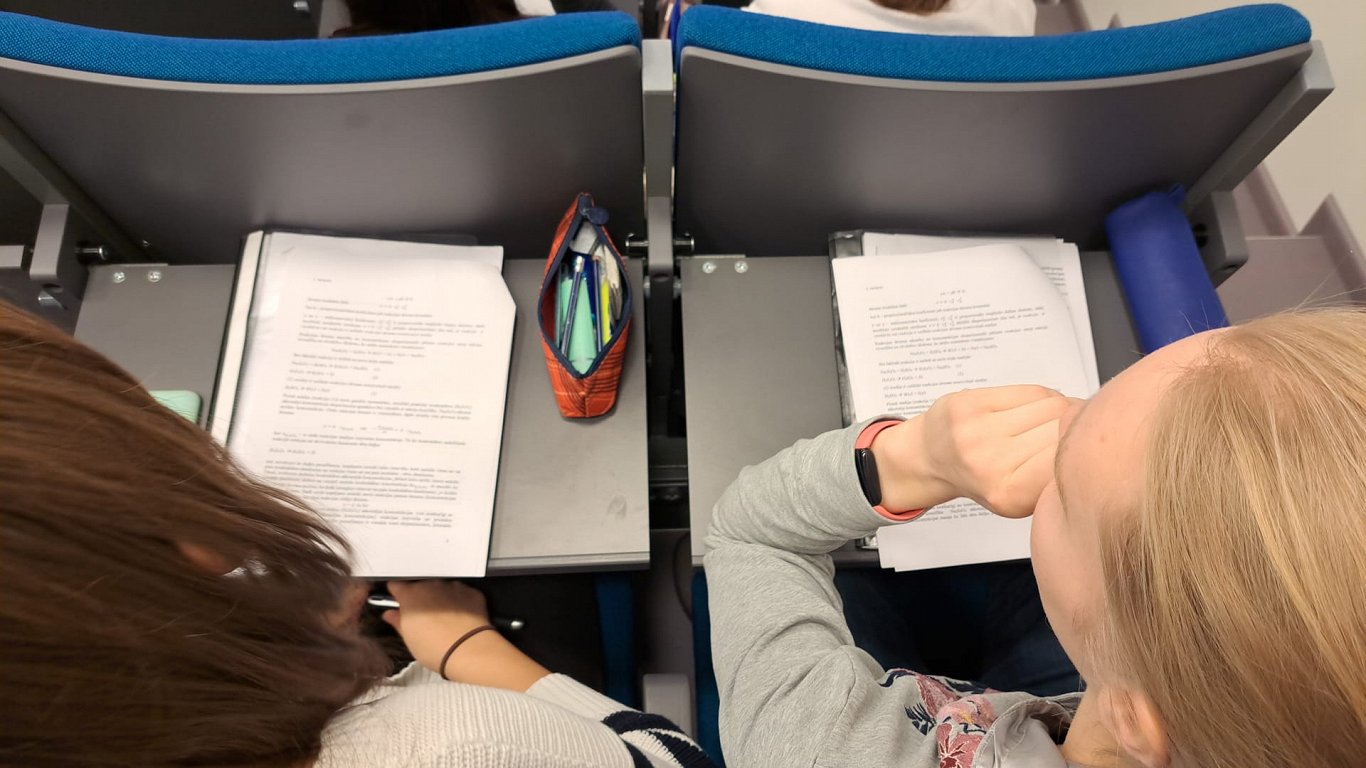Guidelines on the use of AI have just been developed at the University of Latvia (LU) and Rīga Stradiņš University (RSU) and were introduced earlier this year. These universities have established that the use of generative AI is not plagiarism, but can be considered unauthorized use of a learning aid.
University of Latvia's guidelines set limits on how much and in what cases AI can be used. Sanita Baranova, Associate Professor at the University's Faculty of Educational Sciences and Psychology, who was also involved in the development of the guidelines, pointed out that their main aim is to promote responsible as well as creative use of AI in studies.
"It is more problematic in the humanities, where there could be bans or stricter rules because these students work with texts, writing and producing texts themselves, to develop skills. Whether it's language or communication, these are authentic skills. In our discussion, this problem was seen less in the exact sciences - physics, chemistry, mathematics - where they said that a lot of the tests are about solving specific problems and also about oral communication, so it is not such a barrier," Baranova said.
Artificial intelligence has a particular impact on reports and essays as a form of testing. This does not mean that there are plans to do away with these tests, but students are required to provide references to specific texts that use AI. The possibility or prohibition of the use of artificial intelligence in each course of study is determined by the teacher. This principle is also the basis of the newly established guidelines.
"Our working group also agreed that the lecturer has the right to allow or prohibit the use of AI in their course, but to specify - if it is allowed, how and which solutions or tools are allowed, how to use them, what the assessment criteria are if it is allowed to be used in tests. The guidelines also say that we urge both students and lecturers not to be afraid and to give it a try, because only then will we know what the possibilities and risks are," said Baranova.
At Stradiņš University, the guidelines are also aimed at lecturers, encouraging them to integrate AI more into their teaching, said Nora Jansone-Ratinīka, Associate Professor and Director of the Centre for Pedagogical Development.
"One of the tasks and responsibilities of the lecturer is to define in the courses of study, depending on the field and the specifics of the course of study, how students can use AI and how lecturers themselves encourage students to use these tools in assignments and assessments," explained the RSU representative.
Asked if there are any areas where AI tools are discouraged, Jansone-Ratinika said, "I think it is one of the educational technologies that has very much taken over the educational space, but none of the AI tools are an end in themselves. If we see that it works effectively and that we can really learn better, more usefully and faster this way, then we do it. But to prioritize areas or again to exclude other content areas where the use of AI would definitely not be allowed, I think not."
The students Latvian Radio met in the corridors of the university, especially in the medical field, mostly said they did not trust AI and did not think it was helpful so far in a field where most of the knowledge had to be proven in practice.
"I think AI is too stupid to be used in studies. I study medicine and I do not trust artificial intelligence. You should read papers written by scientists, not by a computer, because it is you who should know, not a robot. The answers he gives me are usually very inadequate, I have used ChatGPT. It may be that the free one is worse than the paid version."
"I have had to use it and it may help answer some questions. But sometimes wrongly, and this cannot be accepted immediately as 100% fact, but needs to be checked further."
"You can get some ideas there, but you can't write them off word for word."
"I have never used ChatGPT, but maybe I don't really know how to ask the AI the right question and I need to be more subtle, because if you just ask something like that, it won't be the answer you want to get."
Līga Ozoliņa, a lecturer at the Faculty of Social Sciences at RSU, confirmed that students, as well as the lecturers themselves, are experimenting with artificial intelligence tools. However, at the moment, for example, the texts it generates are easily recognisable to the lecturer.
"Lecturers have a trained eye, we know what we are looking for. We look for current literature, references, and how the idea is structured, and if you read the text carefully, you can immediately see some AI tendencies - politically correct text, polished, well, like beads strung together, but knowing our students and their writing style, we can immediately recognize if it is the student's level, how the language is used.
"It's on the level of feeling, of course, and nothing is 100%, [..], but it's an indication that there's something wrong with the text. So that level of prior knowledge is still important and we cannot now say that we are going to do everything by artificial intelligence and finish university with a distinction diploma. I do not think that is possible at the moment. If maybe one lecturer misses it, then there will be a course where it won't work and they will be caught," said Ozoliņa.





























